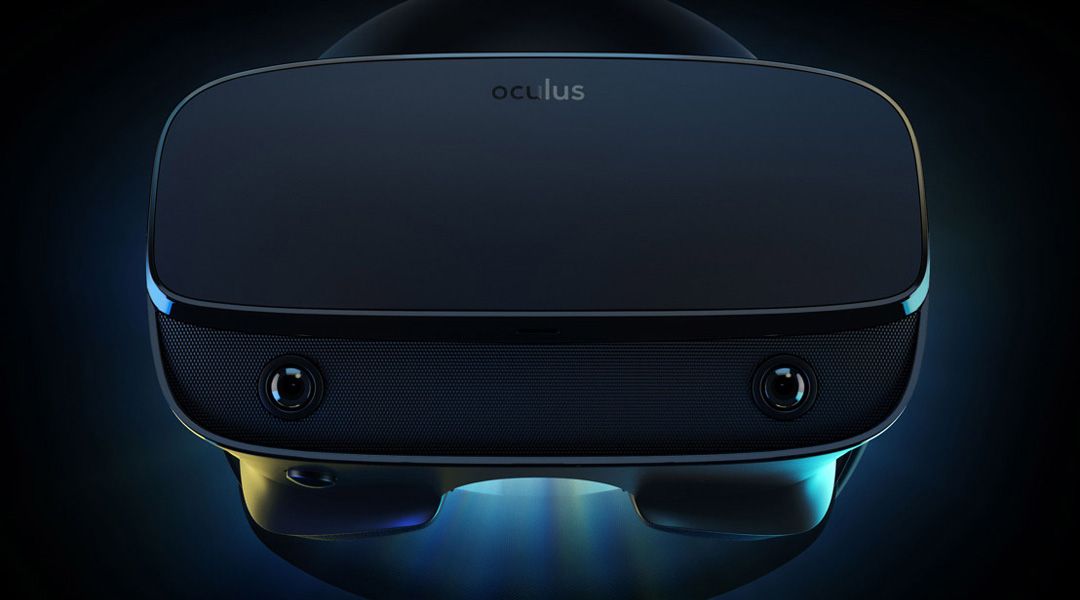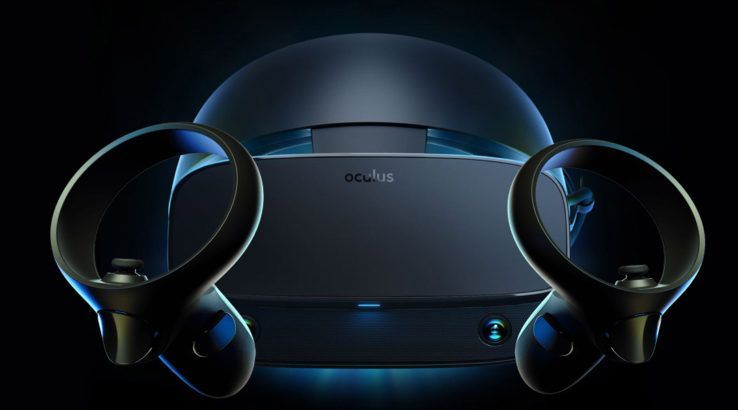When the Oculus Rift came out in 2016, it elevated the standard of virtual reality gaming and brought a mainstream focus to the idea. Facebook and Oculus have now jointly announced the device's ultimate successor, the Oculus Rift S, which will be releasing later this spring. The Oculus Rift S will come packaged with two Oculus Touch controllers and will run gamers $399, striking what the studio hopes will be a "sweet spot" of affordability for VR enthusiasts. Notably, the standalone Oculus Quest will retail for the same price, too.
The Oculus Rift S forgoes the room sensors of the 2016 edition, instead relying on built-in Insight technology to accurately track movements. This means that the headset can operate with a sole USB wire plugged into a computer, which is much less of a hassle for consumers. For VR enthusiasts hoping for a wireless headset, however, it looks like that isn't part of Oculus Studios' current vision. Studio boss Jason Rubin confirmed that no official first-party wireless headset was in the works, as it would have required either a price increase or a downsize in output resolution (the Rift S has an output resolution of 2560 x 1440).
With the Oculus Rift S having a higher resolution than the original Rift, the improved display should reduce the 'screen door' effect that many gamers experience when playing in the Rift's VR environments. This visual impairment has exasperated symptoms of motion sickness for some gamers, so an improvement in this area is sure to be met with much positivity from the fanbase. The Rift S also has a "Passthrough Plus" feature, allowing VR gamers to quickly view the real word without taking the headset off - a cumbersome act that anyone who has delved into VR is likely intimately familiar with. One can now also trace their "safe playing area" with an Oculus Touch controller instead of charting it out on the computer, which feels like a much more natural process.
The Oculus Rift S will be able to run everything that the original Rift ran, and it'll support cross-play and cross-buy with the Oculus Quest. It's a logical move from the VR headset producer, as it frees consumers to upgrade or change their VR gear at any point without losing any existing purchases. Rubin says the Quest is intended for more casual users, with more hardcore enthusiasts being targeted by the Oculus Rift S.
Oculus and its controversial founder, Palmer Luckey, certainly pushed virtual reality gaming to mainstream audiences. After splashing out a staggering 2 billion dollars to purchase the company, Facebook will be keen to see commercial success as it aims to secure a foothold for the VR industry. Whether either the Oculus Rift S or Oculus Quest are able to do so will remain a mystery for now, but it's hard to argue that $399 - the price of a modest work laptop - is unreasonable for consumers curious about the concept of virtual reality gaming.
The Oculus Rift S will release this spring for $399.
Source: IGN


